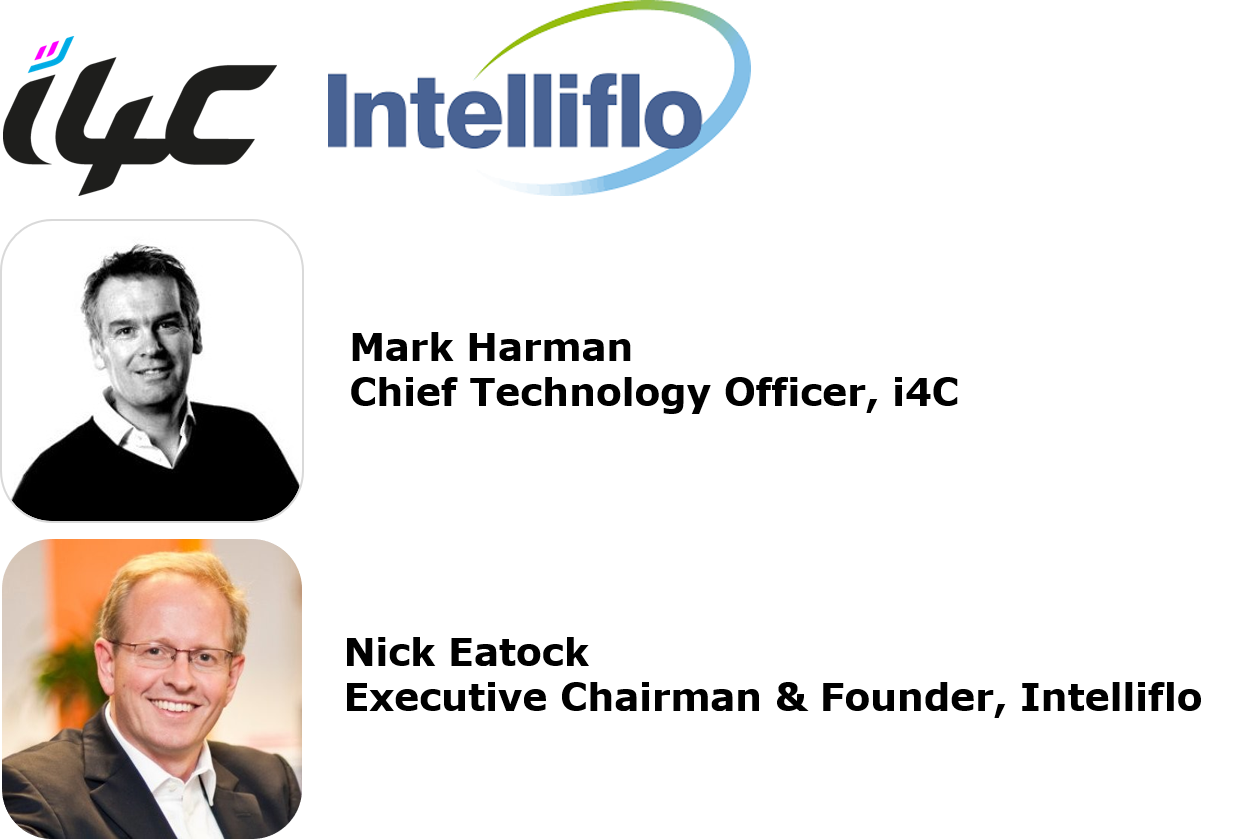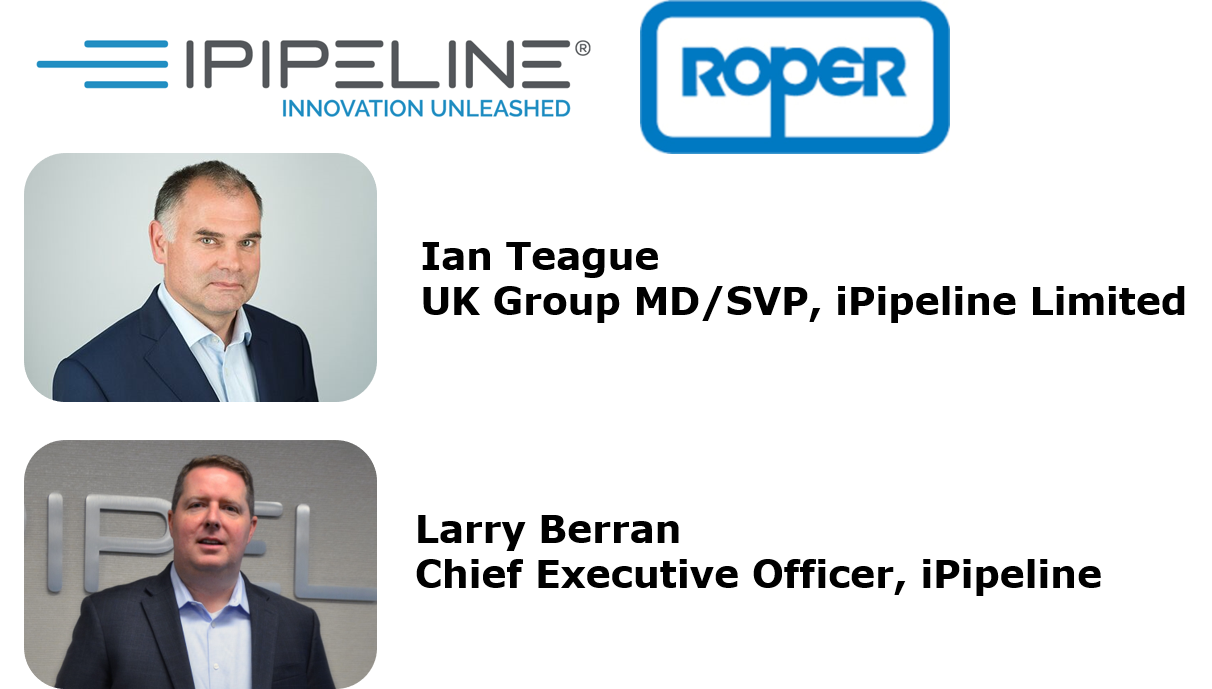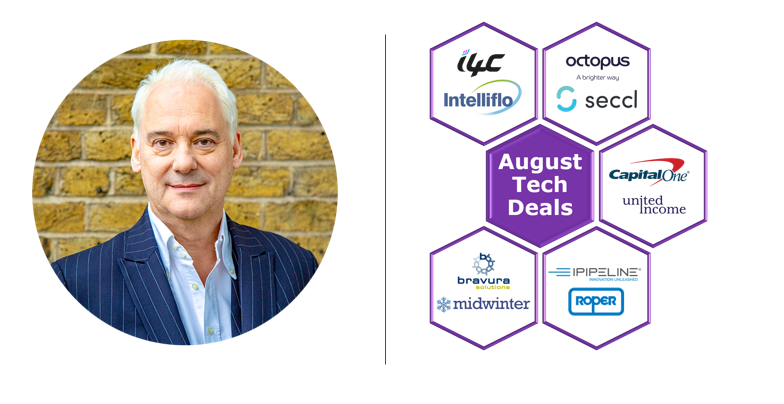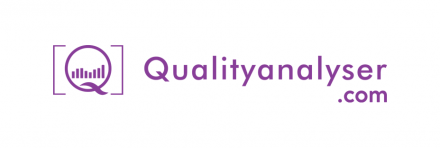i4C to Intelliflo

Intelligent Office has had its own set of planning tools for many years but Intelliflo have long had an approach of allowing competing tools to integrate so advisers can select their own best of breed options.
In all honesty the in-house tools were far from the best part of the system, so buying a specialist provider makes a lot of sense. The existing third-party options will continue to be available via the IO store so everyone should be happy.
With their international expansion plans, and contrary to thoughts in some quarters, that is not just about Australia, Intelliflo, and their parent Invesco, will certainly be able to take i4c to a far wider audience than just the UK in ways that would have been hard, if not impossible, for the fledgling planning tools business.
While the UK market for planning tools is full of incumbents from long standing players like Prestwood and Voyant, the incredibly fast growing CashCalc and the stunning Focus Now:Plan Digital toolkit (for those who have deep pockets) being owned by the largest practice management solution on the market has to give you an advantage.
Intelliflo tell me they bought the business because while many planning tools of all shapes and sizes have worked with their suite of APIs, they wanted there to be a tool in the market that takes full advantage of everything their APIs can offer. This is an interesting message and is something Intelligent Office users should watch.
I see valuable synergies between i4c and the pending Open Banking service from Intelliflo.
It is actually hard to see a loser in this deal although it does highlight that not all practice management systems are as open in giving advisers the ability to choose their preferred tools provider.
Octopus and Seccl
A real steal, or buying as the smart money is getting out?

Octopus bought Hugo Thorman’s fledging platform business for what almost appears a nominal sum in the context of AdviserTech deals these days. This is almost certainly a fraction of what it would have cost to build their own platform from scratch and saved masses of time in terms of speed to market.
The company have made a number of other tech investments but to be honest nothing that has ever made me think wow, these guys are on to something.
Mark Polson suggests the strategy is to offer a modern, low cost, white label platform to advisers who are desperate to move away from large platforms.
There is certainly a huge amount of pent up demand in this space and with FNZ having swallowed GBST, making it really hard to see how large platforms can differentiate themselves, never mind the concentration risk this brings, I can see “it’s not FNZ” being an argument that may be attractive to some advisers.
Assuming the FCA succeed in driving faster platform transfers and more technology to facilitate this it may be a good time to be able to help advisers with the alternatives many firms clearly desire.
Conversely, it does look more and more like the platform end of the market will become ever more commoditised and the success of the Octopus move will most probably be defined by what they put around it and what they can connect it to. This may be a real steal at this price or buying into an area just as the smart money is getting out. Early days but certainly one to watch closely.
United Income to Capital One
A great deal for American consumers and a big relief for UK institutions and wealthtechs

Looking at it from a purely parochial perspective personally I’m disappointed to see United Income absorbed by Capital One, not because they are not a great business, indeed they are an exceptional one. So much so that if there is one US Digital Wealth proposition I would like to see in Britain it is United Income. They would undoubtedly have a hugely disturbing impact on the traditional financial services market that would be really good for consumers and leave many of the behemoths of the financial services industry reeling on the ropes, desperately scrambling to deliver the sort of innovation they should have introduced to help consumers years ago.
United Income is the brainchild of Matt Fellowes, a Brookings scholar and scion of the Fellowes family who, not content to enjoy the family wealth had already built Hello Wallet, the inspiration for most modern digital Financial Wellness propositions and sold it to Morningstar (who then sadly sold it to Keybank, ending any chance of that service making it to these shores or anywhere else outside the US).
Fellows has a great team including Elizabeth Kelly, previously Special Assistant for Economic Policy to President Barack Obama who played a major role in coordinating the development and roll out of the Fiduciary rule for financial advisers, sadly now reversed by the current administration. The point being usually US wealth technology and especially their robo advice solutions would need a massive overhaul before it could meet UK financial regulatory requirements. I don’t believe this would have been the case with United Income, their concierge style algorithm driven accumulation and decumulation ticks pretty much all the boxes to meet UK regulatory standards, but with Capital One having only a limited UK footprint it is unlikely we will see this great retirement planning service in Britain, where it is much needed.
I’m sure the deal is a great move for millions of Americans who need more help with their retirement planning. That said, it further contributes to my growing view that the US looks set to lose its global leadership role in personal finance due to a lack of consumer protection regulation and American firms focusing on the significant opportunity in their domestic market but missing the much larger global savings transformation that is taking place. US firms who want to be more than just domestic suppliers must stop thinking the rest of the world will wait while they fix America. A more detailed blog on my rationale on this will appear soon.
iPipeline to Roper
A smart investment in an exceptional team

The iPipeline deal is really business as usual since it appears Roper will allow the current management team to keep growing the business. This allows former CEO Tim Wallace to step back to an advisory role. Wallace has done a great job of stewarding iPipeline from a life insurance quote provider to a far broader based financial technology group, capable of supporting end to end transactions in Life and Annuity businesses through a series of excellent acquisitions. Unlike many of their peers iPipeline have not been afraid to acquire internationally not least the AssureWeb and TCP Systems UK businesses, the latter having just announced some significant deals with US carriers. Earlier this year they also acquired Canadian SaaS provider Bluesun who play a role in 70% of life insurance product originated in the independent channel in the country.
Wallace’s mantle is adopted by Larry Berran who has been with the company since 2002 so very much a transfer to a safe pair of hands.
New ownership who will let the successful team continue to manage the business, plus an in-house transfer of leadership are both signs of a stable team which when the business has achieved so much in recent years is good news for customers. Equally the international acquisitions selling into the US and the obvious opportunity to extend a successful product set to support other jurisdictions should be good news for everyone, except possibly iPipeline’s competitors.
Midwinter to Bravura
The next innings in the AdviserTech Ashes

The Bravura acquisition of Midwinter may yet be the most fascinating of all these deals pulled off in August.
If it works, they may have pulled it off for a fraction of what they would have paid for recent target GBST. Midwinter describe themselves as the next generation OS for advice firms. I’ve not had a detailed look yet, but this appears a very broad ranging offering which may be both a blessing and a curse. On the one hand the software covers a wide range functions not normally included within a traditional investment platform, but that means a lot of localisation will be needed.
Previous Australian businesses coming to the UK have not always recognised the full extent of localisation needed to be a viable UK solution so the extent to which Midwinter get this right will be crucial.
To be fair, the UK and EMEA are not the only markets where there may be synergies between the two businesses, indeed APAC may be a more important region.
Putting a traditional adviser practice management and planning proposition on the front of technology supporting multiple platforms looks an interesting innovation, but in a UK context do Bravura have enough clients to make this work?
I can see this being as interesting as the rest of the Ashes although it may take rather longer to play out.
So as I said, nothing significant happens in August, not! If you think I have missed another strategically significant deal please flag it to me. In the meantime I’m off to work through the ramifications of all of the above in more detail and work them into our Adviser Software Insights and Digital Wealth Insights reports. If you are interested in a detailed understanding with regular updates of the fast evolving AdviserTech and Digital Wealth markets you probably want to speak to us about these studies. You can find out what existing subscribers say here:
If you would like my future thoughts on these issues delivered straight to your inbox as soon as they are published, please sign up here:













